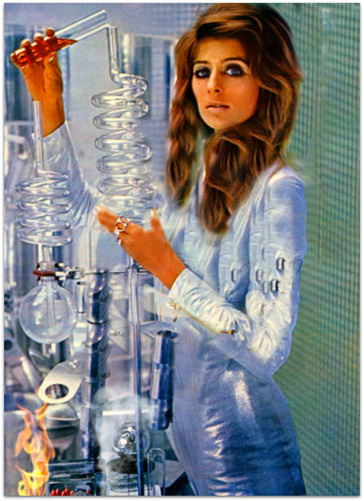Frequently asked questions about DHA

What is DHA?
The active ingredient most often used in all sunless tanners including tinted moisturizers, self-tanners, and spray tan solution is called DHA or dihydroxyacetone. DHA is a carbohydrate (monosaccharide sugar) compound approved by the FDA for use in externally applied sunless tanning solutions. For misting applications, the FDA recommends protective measures to prevent eye contact, inhalation or ingestion.
DHA is often derived from a vegetable source like beets or sugar cane. Its properties as a skin darkener were discovered in the 1920s but weren’t marketed as such until the 1960s, then added to the FDA’s list of approved colors for cosmetic products in the 1970s.
Is the DHA in Sunless Spray Tanning solution safe to use?
The FDA has approved DHA for external application to your skin. For misting applications, the FDA recommends protective measures to prevent eye contact, inhalation or ingestion. To make sure you are completely protected, the FDA suggests wearing protective eyewear, nose filters, lip balm, and protective undergarments.
Has anyone ever had an allergic reaction to Sunless Spray Tanning solution?
Yes. If you’ve had previous allergic reactions to self-tanning lotions or cosmetics, you should consult a health care professional before using spray tanning.
What happens if the Sunless Spray Tanning solution gets in my eyes?
FDA recommends that DHA not be used in the eyes or surrounding area. That is why we recommend using protective eyewear which can be supplied by your salon. If you choose not to wear protective eyewear and your eyes feel irritated, gently splash with water. If you have additional questions, consult your health care provider.
What happens if I inhale any of the Sunless Spray Tanning solution?
FDA recommends that DHA not be inhaled. That is why we recommend using nose filters which can be supplied by your salon. If you choose not to wear nose filters and your nose feels irritated, consult your health care provider.
What is the Sunless Spray Tan (DHA) advisory?
The FDA advises that users should avoid inhaling or ingesting DHA or letting the spray get into your eyes. When using DHA-containing products as an all-over spray or mist, it may be difficult to avoid exposure in a manner for which DHA is not approved, including the area of the eyes, lips, or mucous membrane, or internally.
The FDA recommends you take protective measures to eliminate eye contact, inhalation or ingestion during your spray tan session, such as:
Ask your Salon Professional for details.
If you have additional concerns, always consult with your health care provider for further guidance.
To understand the complete FDA position on DHA please go to www.FDA.gov
The active ingredient most often used in all sunless tanners including tinted moisturizers, self-tanners, and spray tan solution is called DHA or dihydroxyacetone. DHA is a carbohydrate (monosaccharide sugar) compound approved by the FDA for use in externally applied sunless tanning solutions. For misting applications, the FDA recommends protective measures to prevent eye contact, inhalation or ingestion.
DHA is often derived from a vegetable source like beets or sugar cane. Its properties as a skin darkener were discovered in the 1920s but weren’t marketed as such until the 1960s, then added to the FDA’s list of approved colors for cosmetic products in the 1970s.
Is the DHA in Sunless Spray Tanning solution safe to use?
The FDA has approved DHA for external application to your skin. For misting applications, the FDA recommends protective measures to prevent eye contact, inhalation or ingestion. To make sure you are completely protected, the FDA suggests wearing protective eyewear, nose filters, lip balm, and protective undergarments.
Has anyone ever had an allergic reaction to Sunless Spray Tanning solution?
Yes. If you’ve had previous allergic reactions to self-tanning lotions or cosmetics, you should consult a health care professional before using spray tanning.
What happens if the Sunless Spray Tanning solution gets in my eyes?
FDA recommends that DHA not be used in the eyes or surrounding area. That is why we recommend using protective eyewear which can be supplied by your salon. If you choose not to wear protective eyewear and your eyes feel irritated, gently splash with water. If you have additional questions, consult your health care provider.
What happens if I inhale any of the Sunless Spray Tanning solution?
FDA recommends that DHA not be inhaled. That is why we recommend using nose filters which can be supplied by your salon. If you choose not to wear nose filters and your nose feels irritated, consult your health care provider.
What is the Sunless Spray Tan (DHA) advisory?
The FDA advises that users should avoid inhaling or ingesting DHA or letting the spray get into your eyes. When using DHA-containing products as an all-over spray or mist, it may be difficult to avoid exposure in a manner for which DHA is not approved, including the area of the eyes, lips, or mucous membrane, or internally.
The FDA recommends you take protective measures to eliminate eye contact, inhalation or ingestion during your spray tan session, such as:
- Using protective eyewear
- Wearing nose filters
- Sealing lips with lip balm
- Using protective undergarments
Ask your Salon Professional for details.
If you have additional concerns, always consult with your health care provider for further guidance.
To understand the complete FDA position on DHA please go to www.FDA.gov